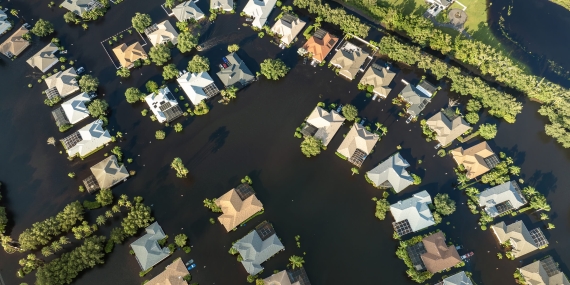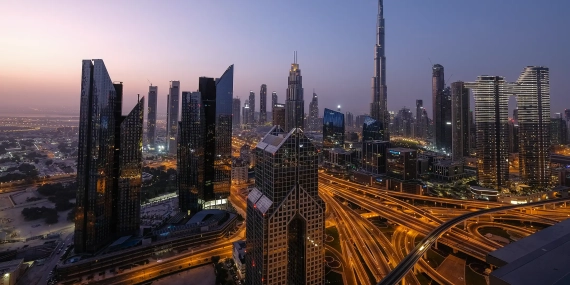TL;DR
In November 2023, Dubai will take center stage as it hosts the 28th session of the Conference of the Parties (COP 28) to the United Nations Framework Convention on Climate Change (UNFCCC).
This event marks a pivotal moment in the ongoing global effort to address climate change. Amidst a backdrop of increasing environmental crises and geopolitical tensions, COP 28 is set to be a watershed moment in defining the future trajectory of international climate policy and action.
Location and Leadership Controversies
The selection of Dubai as the venue for COP 28 has sparked a mix of anticipation and controversy.
Hosting the conference in the United Arab Emirates (UAE), a nation deeply rooted in the oil industry, has raised concerns about potential conflicts of interest and the influence of fossil fuel companies on the conference agenda.
Additionally, the appointment of Sultan Al Jaber, the CEO of the Abu Dhabi National Oil Company, as the COP president, has intensified these concerns. Critics argue that this could lead to a softening of stances on fossil fuel reduction and a potential bias towards oil-producing nations.

However, there is also a counter-argument that hosting COP 28 in an oil-rich nation could provide a unique opportunity to directly engage with and influence some of the key players in the global fossil fuel market.
The UAE has been making strides in diversifying its economy and investing in renewable energy, and COP 28 could serve as a platform to showcase these efforts and encourage other oil-dependent nations to follow suit.
Health and Climate Change
A significant addition to this year’s agenda is the focus on climate change's impact on health.
For the first time, COP 28, in partnership with the World Health Organization (WHO), will host a health ministerial meeting. This meeting will address the escalating health risks posed by climate change, particularly in lower-income countries.
The health impacts of climate change are vast and varied, ranging from increased exposure to heatwaves and the spread of vector-borne diseases to the exacerbation of air pollution and its associated respiratory problems.
This focus on health is a response to the growing recognition that climate change is not just an environmental issue but also a critical public health concern. By integrating health into the climate discussion, COP 28 aims to broaden the perspective on climate action, highlighting the need for strategies that protect both the planet and its inhabitants' health.
Trade and Climate
Trade is another critical topic on the COP 28 agenda, particularly in the context of how global trade practices and policies can be aligned with climate goals.
A key discussion point will be the European Union's Carbon Border Adjustment Mechanism (CBAM), a groundbreaking policy designed to level the playing field for European companies by imposing a carbon cost on imports from countries with less stringent climate policies.
The debate around CBAM and similar policies is expected to be intense, with implications for international trade relations and the global push towards a greener economy. These discussions will also touch on broader issues of economic equity and the need to support developing countries in transitioning to low-carbon economies without compromising their economic growth.
Biodiversity, Food Security, and Just Transitions
Biodiversity and food security are set to be major themes at COP 28. The conference will explore the deep interconnections between climate change, biodiversity loss, and global food systems. There is an increasing recognition of the need to protect and restore ecosystems not just for their intrinsic value, but also for their critical role in supporting agriculture, providing fresh water, and regulating climate.
COP 28 is expected to emphasize sustainable practices such as regenerative agriculture and water-resilient food systems.
These practices are not only crucial for maintaining biodiversity and ensuring food security but also play a significant role in carbon sequestration and mitigating climate change. Furthermore, the concept of just transitions will be central to these discussions, highlighting the need to ensure that the move towards sustainable agricultural and ecological practices is equitable and does not disproportionately impact small-scale farmers and indigenous communities.
The Challenge of Fossil Fuels
Despite the global shift towards renewable energy, the issue of fossil fuels remains a contentious and central topic at COP 28. The significant subsidies that many governments provide to the fossil fuel industry, amounting to billions of dollars annually, continue to be a major barrier to achieving global climate targets.
COP 28 will confront the delicate balance between reducing reliance on fossil fuels and addressing the economic dependencies many countries have on this industry.
Discussions will likely revolve around strategies for phasing out fossil fuel subsidies, promoting renewable energy investments, and transitioning to cleaner energy sources in a manner that is both environmentally sustainable and economically viable.

Physical Risks and Climate Finance
A significant focus at COP 28 will be on the physical risks associated with climate change, particularly in the banking and financial sectors. These risks include the impacts of extreme weather events and natural disasters on financial stability and investment strategies.
The conference will explore how banks and financial institutions can assess, manage, and mitigate these risks, promoting more resilient and sustainable financial practices. Discussions will likely include the role of regulatory bodies in shaping risk assessment and disclosure requirements, with a focus on initiatives by key U.S. and European regulators.
The integration of climate risks into financial decision-making is seen as crucial for steering investments towards more sustainable and resilient economic activities.
Optimistic Outlook Despite Challenges
Despite the complexities and challenges, there is a prevailing sense of optimism around COP 28, stemming from the opportunity the conference presents for significant, tangible progress in the global fight against climate change. The conference is seen as a chance to capitalize on recent technological advances, increase investments in sustainability, and develop comprehensive climate policies that address the needs of both the planet and its people.
This sense of optimism is further bolstered by the growing global consensus on the urgency of climate action. More countries and corporations are setting ambitious net-zero targets, and there is an increased public awareness and demand for action on climate change.
COP 28 provides a unique platform to harness this momentum and translate it into concrete policy decisions and commitments.

COP 28 - A Defining Moment for Climate Action
As the world looks towards COP 28, there is an understanding that the decisions made at this conference will have lasting implications. The actions and commitments agreed upon in Dubai might not only shape the global climate policy landscape but also have far-reaching effects on economies, societies, and ecosystems around the world.
The conference is expected to build upon the outcomes of previous COP meetings, pushing for greater ambition and action. Key issues like climate finance, emission reduction targets, adaptation strategies, and technology transfer will be high on the agenda. The success of COP 28 will largely depend on the willingness of nations to collaborate, compromise, and commit to bold and decisive action.
COP 28 in Dubai is poised to be a defining moment in the history of global climate action. With its focus on health, trade, biodiversity, fossil fuels, and the inclusion of financial sector risks, the conference underscores the multifaceted nature of the climate crisis. The world will be watching as nations come together to navigate these complexities and make decisions that will shape our collective future.
As we approach COP 28, the anticipation and expectations are high. The conference could set a new course towards a more sustainable and equitable world. The challenges are immense, but so are the opportunities for progress and innovation.
COP 28 has the potential to mark a turning point in our global response to climate change, but achieving this will require collective effort, shared vision, and unwavering commitment from all stakeholders involved.
Next Steps
Banks and real estate firms such as Standard Chartered, CBRE, and Virgin Money leverage our unique climate risk workflow solution, integrating Spectra’s physical risk assessments to identify risks and utilizing Adapt to uncover high-ROI adaptation measures and CapEx opportunities for mitigation planning.
Learn more today to start building resilience in your business.

Sources
- Allianz (2023) COP 28 preview: taking the temperature
- United Nations Framework Convention on Climate Change (UNFCCC) - COP 28 https://unfccc.int/
- Intergovernmental Panel on Climate Change (IPCC) Reports https://www.ipcc.ch/reports/
- World Health Organization - Climate Change and Health https://www.who.int/health-topics/climate-change
- The World Bank - Climate Change https://www.worldbank.org/en/topic/climatechange
- International Union for Conservation of Nature (IUCN) - Biodiversity https://www.iucn.org/theme/species/our-work/climate-change-and-biodiversity
- International Renewable Energy Agency (IRENA) https://www.irena.org/
- Carbon Disclosure Project (CDP) - Financial Sector and Climate Change https://www.cdp.net/en/sectors/financial-services
- European Commission - EU's Green Deal https://ec.europa.eu/info/strategy/priorities-2019-2024/european-green-deal_en
- International Energy Agency (IEA) - World Energy Outlook https://www.iea.org/reports/world-energy-outlook-2021
Our Latest Articles & News
A selection of some of our latest articles covering industry, policy and climate science - written by us.
CBRE expands Climate Risk assessment capabilities with Climate X agreement
CBRE today announced expanded capabilities to provide climate risk data for property investors and occupiers to accelerate sustainability planning, reporting and decision-making.




